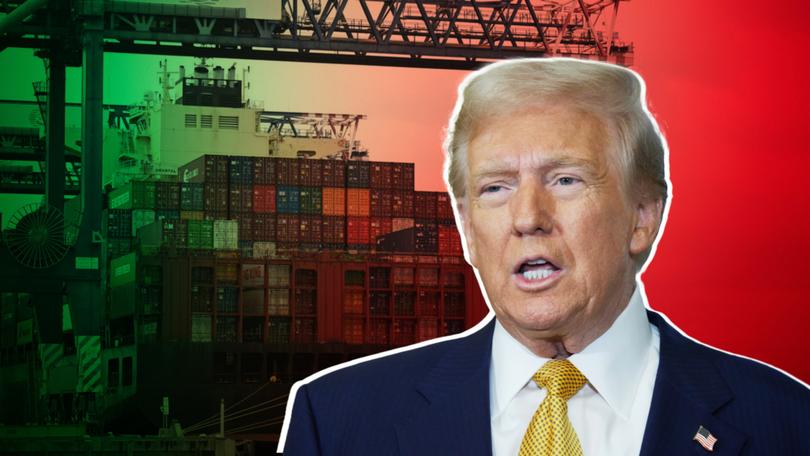Donald Trump tariff threat risks trade war with China, but will it cancel Christmas?
The Ghost of Christmas Yet to Come has visited the RBA deputy, revealing the chance of the global economy plunging into another Depression.

Australia’s central bank has no great expectations of hard times in 2025, despite the threat of a global trade war casting a pall over Christmas celebrations.
Channelling Charles Dickens in a Christmas Carol-themed speech in Sydney, Reserve Bank of Australia deputy governor Andrew Hauser said the country was well placed to ride out the effects of US tariffs.
“Just as Scrooge did not in the end meet his seemingly inevitable fate, the macroeconomic implications for Australia from future global trade policies may be less obvious than they first appear,” he told the Australian Business Economists’ annual dinner on Wednesday evening.
Sign up to The Nightly's newsletters.
Get the first look at the digital newspaper, curated daily stories and breaking headlines delivered to your inbox.
By continuing you agree to our Terms and Privacy Policy.Hanging over the economic outlook for 2025 is uncertainty over the implications of a looming trade war between the world’s two largest economies: China and the US.
US president-elect Donald Trump has threatened 10-20 per cent tariffs on imports coming into America and in excess of 60 per cent on goods from China - Australia’s largest trading partner.
Even if Mr Trump followed through with his tariffs in full, the impact they would have on inflation are ambiguous because of other factors that would need to be taken into account, Mr Hauser said.
Depending on factors such as the extent of the tariffs, exchange rate depreciation, scale of overseas policy stimulus and trade re-routing, the implications for Australian inflation could be positive or negative.
A high reliance on Chinese trade means Australia would be particularly affected by a slowdown in the Chinese economy, but that would depend on the details of US tariffs and what stimulus measures China unveils in response.
Mr Hauser said Australia’s direct exposure to US tariffs was likely to be small, referencing a Peterson Institute study, which found global tariffs would subtract only 0-0.2 per cent from Australian GDP
Strong comparative trading advantages and a track record of nimbly reshaping trade relationships put Australia in good stead to react, he said.
“So it would be unwise to prejudge what may happen in practice,” he said.
“As with every element of monetary policy setting, we will be alert to developments and ready to respond - in either direction, with force if needed - to deliver our mandate of low and stable inflation with sustained full employment.”
The RBA board left the cash rate on hold at 4.35 per cent for its ninth-straight meeting on Tuesday.
Unlike in A Christmas Carol, there are no Ghosts of Christmas Yet to Come to foretell the central bank’s future monetary policy decisions.
“No one could claim that Mr Fezziwig’s (lavish) ball is an apt metaphor for the global trading system, or Australia’s part in it, in 2025. But neither is the graveyard,” Mr Hauser said.
“The chances of being propelled into another global Depression are low.”
